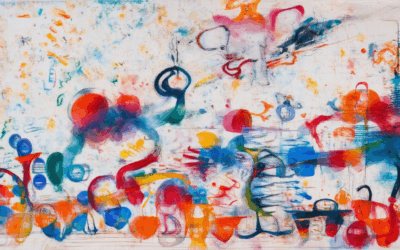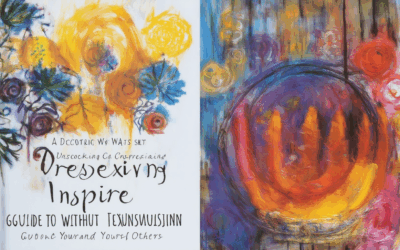Embarking on a journey of self-discovery is a transformative experience that invites introspection, growth, and self-awareness. Whether you’re seeking clarity about your purpose, passions, or identity, this guide offers a comprehensive roadmap to help you navigate the complexities of self-discovery. From understanding the foundational principles to exploring real-life examples and practical strategies, this article provides actionable insights and inspiration to aid your journey toward finding your true self. By embracing reflection, exploration, and mindfulness, you can unlock hidden potentials and create a life aligned with your authentic self. Let’s delve into the essential aspects of self-discovery, offering valuable tips, resources, and stories to illuminate your path.
Key Takeaways
- Start with Self-Reflection: Use journaling and thoughtful questioning to uncover insights about your values and goals.
- Discover Hidden Talents: Engage in new hobbies and activities to find unknown strengths and passions.
- Align with Your Purpose: Define your core values and set meaningful goals that resonate with your true self.
- Nurture Well-Being: Prioritize self-care to enhance your mental, emotional, and physical health.
- Connect with Like-Minded Individuals: Join communities or share your journey with supportive friends, mentors, or online groups.
- Cultivate Spiritual Awareness: Explore your true nature and divine purpose through introspection and spiritual practices.
- Embrace Continuous Growth: Welcome change and evolution as part of your personal and spiritual development.
- Pursue What You Love: Follow your passions and interests to achieve lasting fulfillment and authenticity.

How to Start Your Self-Discovery Journey
Your self-discovery journey is a deeply personal and transformative process. Here’s a structured approach to help you begin:
- Set Clear Intentions Begin by clarifying what you aim to discover about yourself. Are you seeking personal growth, uncovering your passions, or understanding your life’s purpose? Having a clear intention will guide your journey.
- Engage in Daily Reflection Journaling is a powerful tool for self-reflection. Dedicate a few minutes each day to write about your thoughts, emotions, and experiences. This practice helps reveal patterns and insights you may otherwise overlook.
- Explore Your Interests Dive into activities that spark your curiosity. Whether it’s enrolling in an art class or experimenting with a new hobby, pursuing interests can help you discover hidden talents and passions.
- Face Challenges with Courage Set personal goals, such as learning a new language or participating in a marathon, to push beyond your comfort zone. These experiences often highlight unforeseen strengths and capabilities.
- Connect with Like-Minded Individuals Join communities or attend meetups where people share similar self-discovery journeys. Engaging with others can offer fresh perspectives and support, enriching your experience.
- Embrace the Uncertainty Understand that self-discovery is nonlinear. Allow yourself the freedom to navigate through ups and downs. Remember, progress is gradual, and patience is key to this journey.
- Trust the Process Let go of the need for perfection and control. Sometimes, stepping back and allowing things to unfold naturally leads to unexpected growth and insights.
By integrating these steps into your life, you’ll embark on a meaningful self-discovery journey that fosters self-awareness and personal development. Embrace the journey with curiosity and openness, and allow it to unfold naturally.
The Three Pillars of Self-Discovery
Self-discovery is a transformative journey that involves understanding yourself deeply, exploring your passions, and growing into the best version of who you are. Here are the three key pillars that form the foundation of this journey:
- Awareness
- Comfort Zones
- Intentional Living
Awareness
Awareness is the first step toward self-discovery. It involves becoming fully conscious of your thoughts, emotions, and actions. Through introspection and reflection, you can uncover your true values, beliefs, and aspirations. This self-awareness allows you to understand your strengths and weaknesses, helping you navigate life with intention and clarity.
Comfort Zones
Exploring your comfort zones is essential for growth. Comfort zones refer to the routines and habits that feel safe and familiar. Pushing beyond these limits challenges you to take risks, embrace uncertainty, and discover new possibilities. By stepping out of your comfort zone, you open yourself up to new experiences and opportunities for personal development.
Intentional Living
Intentional living is about creating a life that aligns with your purpose and values. It involves setting clear goals, making mindful decisions, and staying focused on what truly matters. By living intentionally, you cultivate a sense of direction and fulfillment, ensuring that your actions contribute to your overall well-being and growth.

How to Write a Personal Blog About Yourself
Writing a personal blog about yourself involves defining your purpose, audience, and content strategy while incorporating SEO best practices to enhance visibility and engagement.
1. Choose a Niche and Purpose
Select a unique topic that aligns with your passions and expertise. Whether it’s cooking, fitness, or photography, ensure your niche offers value to your target audience. Clearly define your blog’s mission, whether it’s to inspire, educate, or entertain.
2. Define Your Audience
Identify who will benefit most from your content. Consider demographics, interests, and pain points. For instance, if your blog focuses on fitness, your audience may include individuals seeking workout routines or nutritional advice.
3. Research Competitors
Study popular blogs in your niche to identify successful strategies and opportunities for differentiation. Analyze their content structure, SEO practices, and engagement tactics to find gaps you can exploit.
Content Creation Tips
- Consistency: Aim to publish regularly, such as once a week, to build trust with your audience.
- Post Types: Mix formats like tutorials, reviews, and personal anecdotes to cater to diverse reader preferences.
- Headlines: Craft compelling titles using relevant keywords to attract clicks and improve SEO performance.
SEO Best Practices
- Title Tags: Use clear, keyword-rich titles optimized for search engines.
- Meta Descriptions: Write concise summaries that entice readers to click your posts.
- Internal Linking: Link to your own posts when relevant, enhancing navigation and SEO without overstuffing.
Monetization and Promotion
- Affiliate Marketing: Recommend products or services you genuinely use, earning commissions when readers purchase through your links.
- Social Media: Share your blog posts on platforms like Instagram or Twitter to expand your reach and drive traffic.
Engagement Strategies
- Reader Interaction: Respond to comments and start discussions to foster a loyal community.
- Analytics Tracking: Use tools like Google Analytics to monitor traffic and adjust your strategy based on performance data.
- A/B Testing: Experiment with different headlines or post formats to optimize engagement and conversions.
Growth and Maintenance
- Persistence: Understand that building a successful blog requires patience and consistency.
- Content Updates: Regularly refresh old posts with new insights or developments to keep content relevant.
By following these steps, you can create a personal blog that resonates with your audience, ranks well in search engines, and fosters meaningful connections.

Examples of Self-Discovery
Self-discovery is a journey of exploring and understanding oneself, often through various experiences and activities. Here are some examples that illustrate the concept:
- Exploring Hobbies and Interests: Trying new hobbies or activities can reveal hidden talents or passions. Whether it’s painting, learning a new language, or picking up a musical instrument, these experiences can lead to self-awareness.
- Journaling: Writing down thoughts and feelings through journaling helps individuals reflect on their lives and gain insight into their values and goals.
- Setting Personal Goals: Creating and working towards personal development goals allows individuals to grow and learn more about themselves.
- Engaging in Creative Expression: Activities like drawing, poetry, or dance provide a medium for self-expression, helping individuals connect with their emotions and identity.
- Volunteering: Helping others through volunteering can offer a sense of purpose and fulfillment, contributing to one’s self-discovery journey.
- Exploring New Places: Traveling to different locations broadens perspectives and exposes individuals to diverse cultures, fostering personal growth and self-discovery.
- Reflecting on Life Experiences: Taking time to reflect on past events and lessons learned can deepen understanding of one’s strengths and areas for improvement.
- Exploring Creativity: Engaging in creative projects, whether artistic or culinary, allows individuals to express themselves and discover their unique style.
- Learning New Skills: Acquiring new skills, such as cooking, coding, or public speaking, can boost confidence and reveal abilities one didn’t know they had.
Self-discovery is a continuous process that can be facilitated through curiosity, exploration, and introspection. By embracing new experiences and reflecting on them, individuals can better understand themselves and grow.
For more insights and resources on self-discovery, visit Patrick Mettraux .
How Do I Rediscover Myself?
Rediscovering yourself is a deeply personal journey that requires introspection, curiosity, and self-compassion. Here’s a step-by-step guide to help you navigate this transformative process:
1. Start with Self-Reflection
- Journal Your Thoughts : Begin by spending time alone to reflect on your life. Write down your thoughts, feelings, and experiences. This helps you gain clarity and identify areas of your life that may need attention or change.
- Ask Thoughtful Questions : Consider questions like, “What makes me happy?” or “What do I wish my life looked like?” These questions can guide your self-reflection process.
2. Explore New Interests
- Try New Activities : Rediscovering yourself often involves stepping out of your comfort zone. Engage in hobbies or activities you’ve never tried before. Whether it’s painting, learning a new language, or attending a workshop, these experiences can reveal hidden passions.
- Seek Inspiration : Read books, watch documentaries, or listen to podcasts about people who’ve successfully rediscovered themselves. Their stories can offer valuable insights and motivation.
3. Identify Your Purpose
- Define Your Values : Reflect on what matters most to you. Are there certain principles or beliefs that guide your life? Understanding your values can help you align your actions with your true purpose.
- Set Goals : Once you understand your values, set meaningful goals for your life. These goals should give you a sense of direction and fulfillment.
4. Embrace Change
- Be Open to Transformation : Rediscovering yourself is often accompanied by change. Embrace this process as a natural part of growth. Change doesn’t mean losing who you are—it means evolving into a better version of yourself.
- Let Go of Limiting Beliefs : Identify any negative thoughts or beliefs that hold you back. Challenge these beliefs and replace them with positive, empowering ones.
5. Practice Self-Care
- Prioritize Well-Being : Self-care is essential for your journey of self-discovery. Make time for activities that nurture your mind, body, and soul, such as meditation, exercise, or simply enjoying a quiet moment alone.
- Surround Yourself with Positivity : Spend time with people who uplift and inspire you. Positive influences can play a crucial role in helping you stay motivated during your journey.
6. Seek Support
- Join Communities : Connecting with others who are on a similar path can provide support and encouragement. Join groups, forums, or classes where people share their experiences and strategies for self-discovery.
- Talk About Your Journey : Don’t hesitate to share your experiences with trusted friends, family, or mentors. Talking about your journey can help you process your emotions and gain perspective.
Rediscovering yourself is a continuous process that takes time and patience. By embracing self-reflection, exploring new possibilities, and staying open to change, you can find renewed purpose and joy in your life.

The Spiritual Meaning of Self-Discovery
Self-discovery is a profound journey that delves into the essence of who we truly are, beyond the superficial layers of identity. From a spiritual perspective, it is seen as a quest to connect with our authentic selves, align with our purpose, and understand the divine spark within.
Key Concepts in Self-Discovery
- The True Self: Discovering our true nature, which is often referred to as the soul or higher self, is a central aspect of self-discovery. This part of us is said to be eternal and connected to the universal consciousness.
- Purpose and Passion: Finding one’s life purpose and passion is a significant outcome of self-discovery. Many spiritual traditions emphasize that our true path is aligned with what we are most passionate about and what brings us the most joy.
- Innate Wisdom: Self-discovery often reveals our innate wisdom, which guides us toward making decisions that are in harmony with our highest good.
- Soul Growth: The journey of self-discovery is not just about finding oneself but also about growing spiritually. It involves embracing experiences that challenge us to evolve and become the best version of ourselves.
Practical Steps Toward Self-Discovery
- Reflection and Journaling: Taking time to reflect on your thoughts, feelings, and experiences can provide valuable insights into your true nature. Journaling is a powerful tool for this process.
- Mindfulness and Meditation: Practicing mindfulness and meditation helps us observe our thoughts and emotions without judgment, allowing us to see beyond the surface and connect with our inner wisdom.
- Exploring Interests and Passions: Engaging in activities that spark curiosity and interest can reveal what truly excites and fulfills us. This exploration often leads to discovering our life purpose.
- Seeking Guidance: Consulting with spiritual teachers, mentors, or communities can offer valuable perspectives and support as we navigate our journey of self-discovery.
Challenges and Pitfalls
- Ego Resistance: Our ego often resists change and self-discovery because it prefers the comfort of familiar patterns. Recognizing this resistance and working through it is crucial for genuine transformation.
- Doubt and Uncertainty: The journey of self-discovery can be fraught with doubt and uncertainty. Trusting the process and staying open to new possibilities is essential.
- External Influences: Societal expectations and cultural norms can sometimes cloud our ability to see our true selves. Breaking free from these constraints is an important step in self-discovery.
Conclusion
Self-discovery is a transformative experience that has the potential to enrich our lives in profound ways. By embracing reflection, mindfulness, and a willingness to explore our inner worlds, we can unlock our true potential and live a life that is authentically ours. The journey may be challenging, but the rewards are immeasurable, leading us closer to our spiritual truth and the divine essence within.





0 Comments